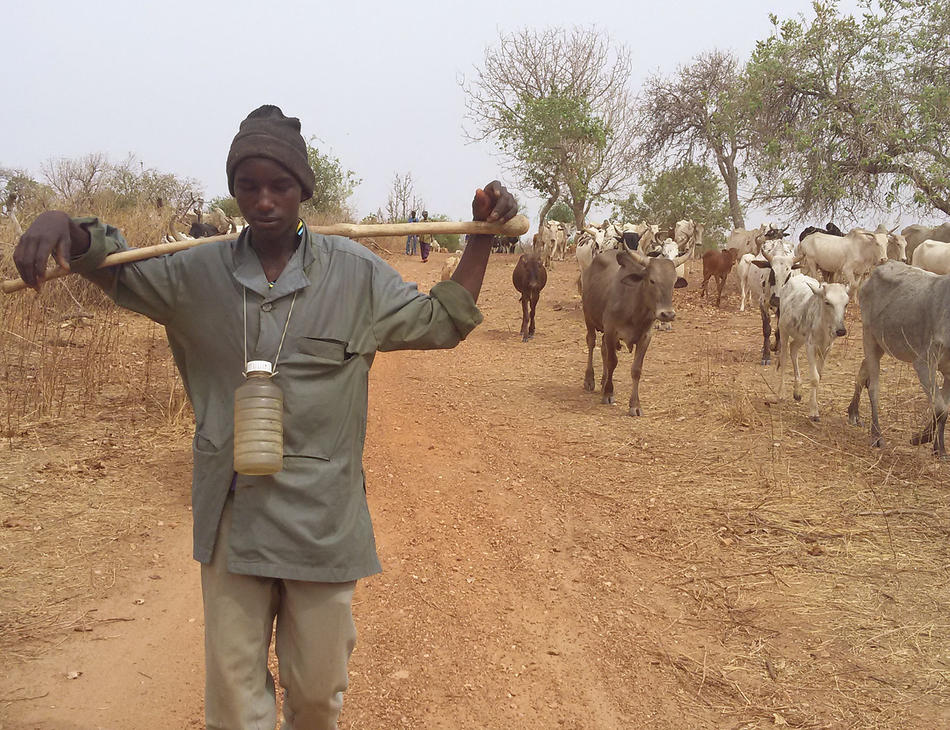For centuries, Fulani herdsmen in Burkina Faso have lived a semi-nomadic existence, spending several months of the year traveling through arid zones, river valleys, and wetlands to keep their cattle fat and healthy. Today, however, many of those West African herders are struggling to survive, as warming temperatures and shifting weather patterns have made it difficult to anticipate where and when fresh pastures will grow.
In an effort to help the herders adapt to climate change, Elisabeth Ilboudo-Nébié, an anthropologist and postdoctoral researcher at Columbia’s International Research Institute for Climate and Society, has spent the past several years mapping their migratory routes. She hopes that climate scientists, armed with her maps, will soon be able to generate seasonal forecasts tailored to the herders’ needs, offering predictions about when particular grasslands will be verdant.
“Seasonal forecasts are already available for the country, but they tend to be oriented toward agriculture rather than herding,” says Ilboudo-Nébié. “Farmers want to know how much rain they will get in a season, but herders want to know which areas will get rain, for how long, and how often.”
Ilboudo-Nébié is also studying how Burkina Faso’s herders decide when it is time to move from one place to another. “The herders use diverse sources of knowledge, including environmental cues such as the appearance of certain birds, to make decisions,” she says. This information will provide a framework for delivering future climate forecasts.



